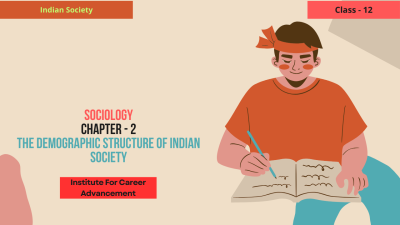Introducing Western Sociologists - Class 11
"Introducing Western Sociologists" is a pivotal chapter in Class 11 Sociology, delving into the foundational contributions of key thinkers who shaped the discipline. It explores the intellectual landscape of the 19th and early 20th centuries, where sociology emerged as a distinct field of study in response to the rapid social and economic changes occurring in Western Europe. Key Themes and Concepts: The Emergence of Sociology: This section examines the historical context that gave rise to sociology, including the Enlightenment, the French Revolution, and the Industrial Revolution. It highlights the need to understand society beyond religious and metaphysical explanations. Karl Marx (1818-1883): Marx is considered one of the founding fathers of sociology. His analysis of society focused on the conflict between the bourgeoisie (the owners of the means of production) and the proletariat (the working class). He emphasized the importance of economic factors in shaping social structures and institutions. Emile Durkheim (1858-1917): Durkheim was a French sociologist who emphasized the importance of social solidarity and collective consciousness. He studied the role of social institutions in maintaining social order and cohesion. His work on suicide highlighted the impact of social integration and regulation on individual behavior. Max Weber (1864-1920): Weber was a German sociologist who focused on the role of individual action and interpretation in shaping social behavior. He developed the concept of verstehen (understanding), which emphasized the importance of empathetic understanding of social phenomena. Weber also studied the relationship between religion and economic development, particularly in the context of Western capitalism. Learning Outcomes: Understanding the historical context in which sociology emerged. Acquiring knowledge about the key ideas and contributions of major Western sociologists, such as Marx, Durkheim, and Weber. Developing an appreciation for the diverse theoretical perspectives in sociology. Applying sociological concepts to analyze contemporary social issues and problems. By studying this chapter, students gain a comprehensive understanding of the foundational ideas of sociology and the contributions of its key thinkers. This knowledge is essential for further exploration of sociological concepts and their application in understanding the social world. "পাশ্চাত্য সমাজবিজ্ঞানীদের পরিচয়" হল একাদশ শ্রেণীর সমাজবিজ্ঞানের একটি গুরুত্বপূর্ণ অধ্যায়, যা মূল চিন্তাবিদদের মৌলিক অবদানের উপর আলোকপাত করে যারা এই শাখাকে রূপ দিয়েছেন। এটি ঊনবিংশ এবং বিংশ শতাব্দীর গোড়ার দিকের বুদ্ধিবৃত্তিক ভূদৃশ্য অন্বেষণ করে, যেখানে পশ্চিম ইউরোপে ঘটে যাওয়া দ্রুত সামাজিক ও অর্থনৈতিক পরিবর্তনের প্রতিক্রিয়ায় সমাজবিজ্ঞান অধ্যয়নের একটি স্বতন্ত্র ক্ষেত্র হিসাবে আবির্ভূত হয়েছিল। মূল বিষয় ও ধারণাঃ সমাজবিজ্ঞানের উত্থানঃ এই বিভাগটি আলোকিতকরণ, ফরাসি বিপ্লব এবং শিল্প বিপ্লব সহ সমাজবিজ্ঞানের জন্মদানকারী ঐতিহাসিক প্রেক্ষাপট পরীক্ষা করে। এটি ধর্মীয় এবং অধিবিদ্যামূলক ব্যাখ্যার বাইরে সমাজকে বোঝার প্রয়োজনীয়তার উপর আলোকপাত করে। কার্ল মার্কস (1818-1883) মার্কসকে সমাজবিজ্ঞানের জনক হিসেবে বিবেচনা করা হয়। সমাজ সম্পর্কে তাঁর বিশ্লেষণ বুর্জোয়া (উৎপাদনের মাধ্যমের মালিক) এবং প্রলেতারিয়েতের মধ্যে দ্বন্দ্বের উপর দৃষ্টি নিবদ্ধ করে। (the working class). তিনি সামাজিক কাঠামো ও প্রতিষ্ঠান গঠনে অর্থনৈতিক বিষয়গুলির গুরুত্বের ওপর জোর দেন। এমিল ডুরখেইম (1858-1917) একজন ফরাসি সমাজবিজ্ঞানী যিনি সামাজিক সংহতি এবং সম্মিলিত চেতনার গুরুত্বের উপর জোর দিয়েছিলেন। তিনি সামাজিক শৃঙ্খলা ও সংহতি বজায় রাখতে সামাজিক প্রতিষ্ঠানগুলির ভূমিকা অধ্যয়ন করেন। আত্মহত্যার উপর তাঁর কাজ ব্যক্তিগত আচরণের উপর সামাজিক সংহতকরণ এবং নিয়ন্ত্রণের প্রভাবকে তুলে ধরেছিল। ম্যাক্স ওয়েবার (1864-1920) একজন জার্মান সমাজবিজ্ঞানী যিনি সামাজিক আচরণ গঠনে ব্যক্তিগত কর্ম এবং ব্যাখ্যার ভূমিকার উপর দৃষ্টি নিবদ্ধ করেছিলেন। তিনি ভার্স্তেহেনের (বোঝাপড়া) ধারণাটি তৈরি করেছিলেন যা সামাজিক ঘটনাগুলির সহানুভূতিশীল বোঝার গুরুত্বের উপর জোর দিয়েছিল। ওয়েবার ধর্ম এবং অর্থনৈতিক উন্নয়নের মধ্যে সম্পর্কও অধ্যয়ন করেন, বিশেষ করে পশ্চিমা পুঁজিবাদের প্রেক্ষাপটে। শেখার ফলাফলঃ ঐতিহাসিক প্রেক্ষাপটে সমাজবিজ্ঞানের উদ্ভব বুঝতে পারা। মার্কস, ডুরখেইম এবং ওয়েবারের মতো প্রধান পশ্চিমা সমাজবিজ্ঞানীদের মূল ধারণা এবং অবদান সম্পর্কে জ্ঞান অর্জন করা। সমাজবিজ্ঞানের বিভিন্ন তাত্ত্বিক দৃষ্টিভঙ্গির প্রতি উপলব্ধি গড়ে তোলা। সমসাময়িক সামাজিক সমস্যা ও সমস্যা বিশ্লেষণের জন্য সমাজতাত্ত্বিক ধারণাগুলি প্রয়োগ করা। এই অধ্যায়টি অধ্যয়নের মাধ্যমে শিক্ষার্থীরা সমাজবিজ্ঞানের মৌলিক ধারণাগুলি এবং এর মূল চিন্তাবিদদের অবদান সম্পর্কে ব্যাপক ধারণা অর্জন করে। এই জ্ঞান সমাজতাত্ত্বিক ধারণাগুলির আরও অন্বেষণ এবং সামাজিক বিশ্বকে বোঝার ক্ষেত্রে তাদের প্রয়োগের জন্য অপরিহার্য।
English
Last updated
Wed, 27-Nov-2024



















